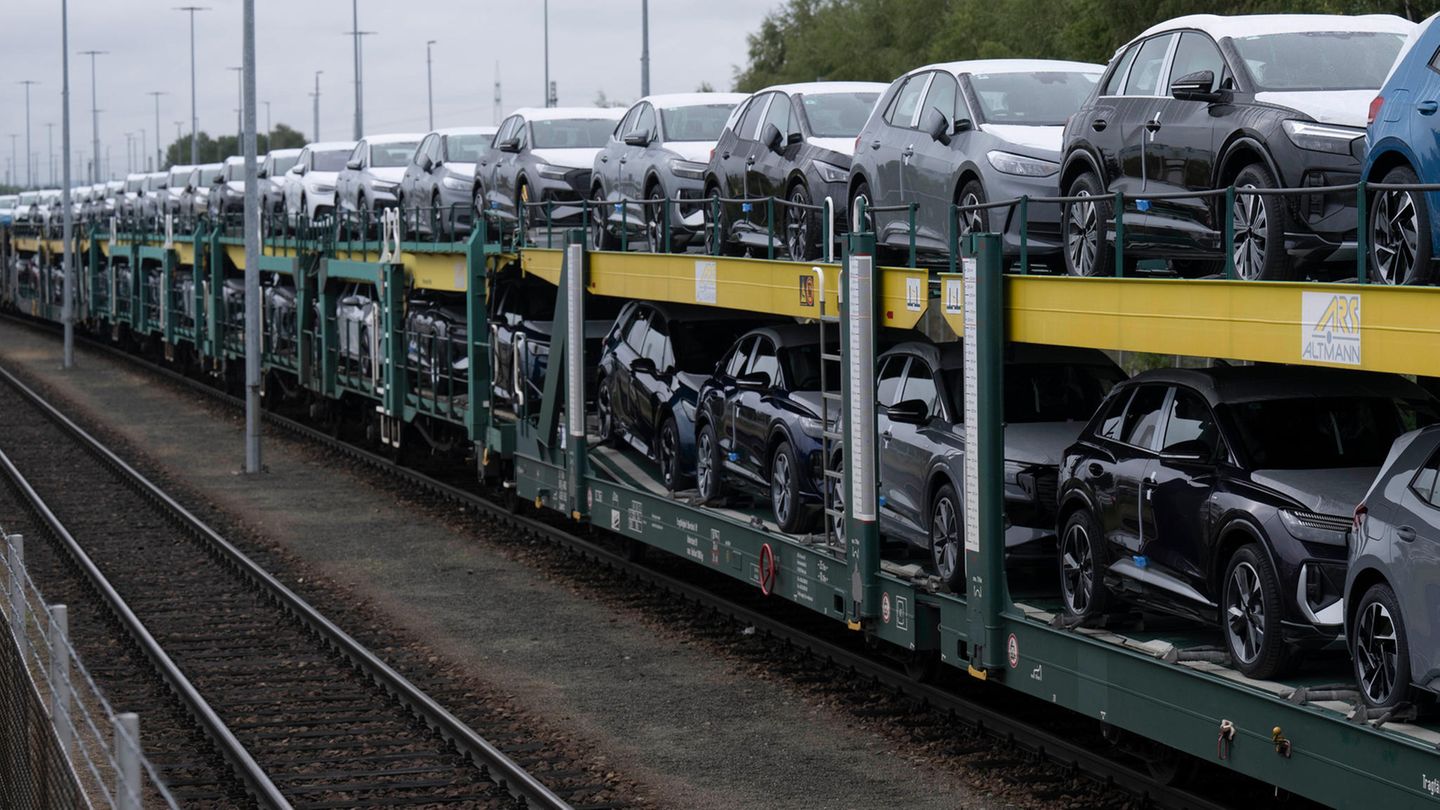The economy will pick up again in the summer, says economist Ferdinand Fichtner. He considers the new joint forecast from the five leading economic institutes to be plausible. Germany could also turn the corner in the long term – if Berlin finally changes course.
professor FichtnerWherever you listen, there is grumbling and complaining. How bad is the German economy really?
The current economic situation is not as bad as it appears in the public discussion. The complaining is still strongly influenced by the difficult past years. When you ask people why they are in a bad mood, it is more likely because things have not gone well in the recent past, rather than because they are pessimistic about the future.
So is Germany being talked badly about? And if so, by whom?
Yes, the opposition parties in particular are throwing unnecessary sand in the works because they hope to be rewarded for it in the next elections. And business associations also present the situation as less friendly than it is in order to get more political support, tax relief or start-up financing. Their whining falls on fertile ground, especially among opposition politicians.
© HTW Berlin/Cornelia Fieguth
To person
Professor Ferdinand Fichtner is an economist at the University of Technology and Economics (HTW) in Berlin. Previously, he was head of the forecasting and economic policy department at the German Institute for Economic Research (DIW) and prepared economic reports himself.
Some entrepreneurs sound as if they would be begging tomorrow.
Exactly. And this at a time when corporate profits are extremely high. You have to look far back in history to find similarly high profits at large public companies. The share prices reflect this: the financial market development is currently fantastic. The owners of the companies, the shareholders, see the situation much more hopefully than their company spokespersons.
Still stands Germany In terms of growth, it is significantly worse off than many other European countries. Why is that?
Because we were much more dependent on Russia, especially for energy. We still have to recover from the huge upheavals of 2022, which were particularly serious for Germany.
This year, the five leading economic institutes expect growth of just 0.1 percent in their joint forecast. Pathetic, right?
That’s not much, no question. I’m not predicting more than a good zero either. The reason for this is: We started this year with very, very little momentum; the zero is a result of the extremely weak winter half-year. But that doesn’t mean that we can’t still be on a positive note again. I am much more optimistic for the summer and the second half of the year.
And for 2025? The research institutes expect an increase of 1.4 percent.
Especially then. If we go into 2025 with momentum, the prospects are much better.
The prevailing opinion is that high energy prices and a shortage of skilled workers are to blame for the misery. Is it really like that?
Energy and food prices are currently playing an important role. They have increased to such an extreme for consumers that they no longer spend money on things that they would have previously treated themselves to. The savings rate is extremely high. The cause is a profound uncertainty that is completely understandable. What is happening in Ukraine? What in Russia that we are still economically dependent on? What in the Middle East? Will Trump soon be in government again in the USA? Or even the AfD here? None of this is intended to inspire confidence.
What does this mood mean in the future, for example for the long-standing auto nation of Germany, which is currently lame? Will we finally be left behind by the Chinese by switching to e-mobility?
The current economic situation, which, as I said, is not that bad, is actually something completely different from the long-term perspective. We are faced with enormous problems. At the moment I don’t see that we can keep up when it comes to making cars; German car manufacturers have missed too many trends. This also applies to other key sectors such as the chemical industry, which has not adapted production and products appropriately to the climate crisis.
What can the federal government do to ignite the fire of growth in the long term? Are subsidies the right way, like the recent 900 million euros for the Northvolt battery factory in Schleswig-Holstein?
Yes, we have to support key sectors with a targeted industrial policy, be it batteries or semiconductors. Even if that always comes with the risk of wasting money. A lot of things were laid out correctly in the new Growth Opportunities Act, but unfortunately it was only able to pass the Federal Council in a very reduced form. The ideas are there, but unfortunately the government lacks financial leeway, partly because of home-made mistakes. I think we therefore urgently need to think about suspending the debt brake. As I said, it’s not about stimulating the economy in the short term, but rather about long-term prospects for the next 50 years.
Slowly the mood seems to be brightening again. The Ifo business climate, which reflects the mood of entrepreneurs, rose by 2.5 percent in March. The European Commission’s consumer confidence index, i.e. purchasing mood, is growing similarly. And the inflation rate is falling. Can we breathe a sigh of relief?
When it comes to the economy in 2024, I think we can be optimistic that we will work our way out of this deep hole that we have slipped into. We’re accelerating hard right now. If the mood continues to improve, we will also see some catch-up effects in consumption. In 2025 we will probably exceed the 1.5 percent growth that we typically expect for the German economy.
Will we get back into stable waters in the long term?
To achieve this, politicians must stop putting new obstacles in their way instead of sending a clear signal: We support companies that show a great willingness to invest, research and produce here. Berlin must finally understand this.
Do you think the penny is still dropping?
Yes, it has to fall, simply because the pressure is getting higher and higher. There is a time coming that will hurt. If the penny doesn’t drop, we will not only be overtaken by China in the automotive industry, but also in our quality of life. That is to be expected.
So we can still do it?
Secure. We still have the prerequisites for this in Germany: an infrastructure of inventors with well-trained people who have a great desire to achieve something.
Source: Stern




